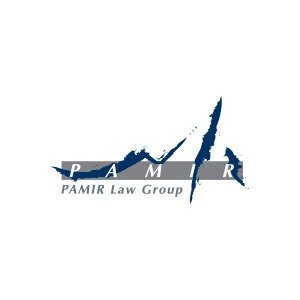Best Administrative Lawyers in Taiwan
Share your needs with us, get contacted by law firms.
Free. Takes 2 min.
Or refine your search by selecting a city:
List of the best lawyers in Taiwan
About Administrative Law in Taiwan
Administrative law in Taiwan governs the activities of administrative agencies of the government. It involves the rules and regulations that these agencies create and the legal principles governing them. This area of law is crucial as it dictates the powers and duties of government agencies, ensuring that they do not exceed their authority and that their actions comply with the law. Taiwan's administrative courts review the legality of government actions and oversight within the framework of both domestic statutes and international agreements.
Why You May Need a Lawyer
There are several situations where you might need a lawyer specializing in administrative law in Taiwan:
- Challenging Government Decisions: If you believe a government agency has made a decision negatively impacting your rights or business, a lawyer can help you appeal or challenge this decision.
- Compliance Issues: Business owners often require legal assistance to ensure they comply with complex regulations and administrative requirements.
- Licensing and Permits: Legal guidance is often essential when applying for licenses or permits to ensure that applications meet all necessary legal standards.
- Regulatory Penalties: Legal help can assist in negotiating or defending against penalties imposed by regulatory bodies.
Local Laws Overview
Several key aspects of Taiwan's administrative laws are particularly notable:
- Administrative Procedure Act: This act outlines the procedures that administrative agencies must follow, standardizing the process and ensuring transparency.
- Freedom of Government Information Law: This law mandates government transparency and the public's right to access government information, though certain exceptions apply.
- Administrative Appeals Act: Provides individuals and entities the right to appeal administrative decisions before a judicial review.
- Land and Property Regulations: Includes regulations on land use, zoning, and redevelopment activities.
Frequently Asked Questions
What is administrative law?
Administrative law deals with the actions and operations of government agencies. It includes the rules, regulations, and procedures created by these entities.
How can I appeal an administrative decision in Taiwan?
You can file an appeal under the Administrative Appeals Act, which provides a structured process for contesting administrative decisions through the judicial system.
What should I do if I receive a regulatory penalty?
Consult with a lawyer experienced in administrative law to understand your options for appealing the penalty or negotiating a resolution.
Is there a time limit for administrative appeals?
Yes, there are specific time limits for filing administrative appeals, usually within 30 days from the date of the decision. It's important to act promptly to preserve your rights.
What are my rights under the Freedom of Government Information Law?
You have the right to request and access information from government agencies, although there can be exceptions for national security or personal data protection.
Can a lawyer help me obtain a government permit?
Yes, a lawyer can assist with every step of obtaining government permits, ensuring that your application meets legal standards and requirements.
What if I disagree with a government regulation?
You can challenge it in court if you believe a regulation is illegal or unconstitutional, often necessitating skilled legal representation.
How do I ensure regulatory compliance for my business?
Consult with an administrative law attorney to audit your business practices, ensuring full compliance with applicable laws and regulations.
What are administrative courts?
Administrative courts in Taiwan are specialized courts that handle disputes involving administrative law, such as appeals against government actions.
Are legal services expensive for administrative law cases?
Costs vary widely depending on the case's complexity and the lawyer's expertise. It's advisable to discuss fees upfront with your lawyer.
Additional Resources
Here are some resources and organizations that can be helpful:
- Ministry of Justice, Taiwan: Offers resources and guidelines on various legal issues, including administrative law.
- Judicial Yuan: Oversees the judiciary, including administrative courts, providing information on case procedures.
- National Development Council: Provides guidelines for regulatory reform and administrative transparency.
- Taiwan Bar Association: Can help you find qualified lawyers specializing in administrative law.
Next Steps
If you need legal assistance in administrative law, consider taking the following steps:
- Identify Your Needs: Clearly define the issue or decision you are facing and what you wish to achieve.
- Research: Gather all relevant documentation and information related to your case or query.
- Consult a Lawyer: Contact a lawyer specializing in administrative law for a consultation to discuss your situation and options.
- Plan Your Approach: Work with your lawyer to develop a strategy, whether it involves compliance, negotiation, or litigation.
- Adhere to Timelines: Ensure that you respect all legal deadlines, especially for appeals, to preserve your legal rights.
Lawzana helps you find the best lawyers and law firms in Taiwan through a curated and pre-screened list of qualified legal professionals. Our platform offers rankings and detailed profiles of attorneys and law firms, allowing you to compare based on practice areas, including Administrative, experience, and client feedback.
Each profile includes a description of the firm's areas of practice, client reviews, team members and partners, year of establishment, spoken languages, office locations, contact information, social media presence, and any published articles or resources. Most firms on our platform speak English and are experienced in both local and international legal matters.
Get a quote from top-rated law firms in Taiwan — quickly, securely, and without unnecessary hassle.
Disclaimer:
The information provided on this page is for general informational purposes only and does not constitute legal advice. While we strive to ensure the accuracy and relevance of the content, legal information may change over time, and interpretations of the law can vary. You should always consult with a qualified legal professional for advice specific to your situation.
We disclaim all liability for actions taken or not taken based on the content of this page. If you believe any information is incorrect or outdated, please contact us, and we will review and update it where appropriate.
Browse administrative law firms by city in Taiwan
Refine your search by selecting a city.
















